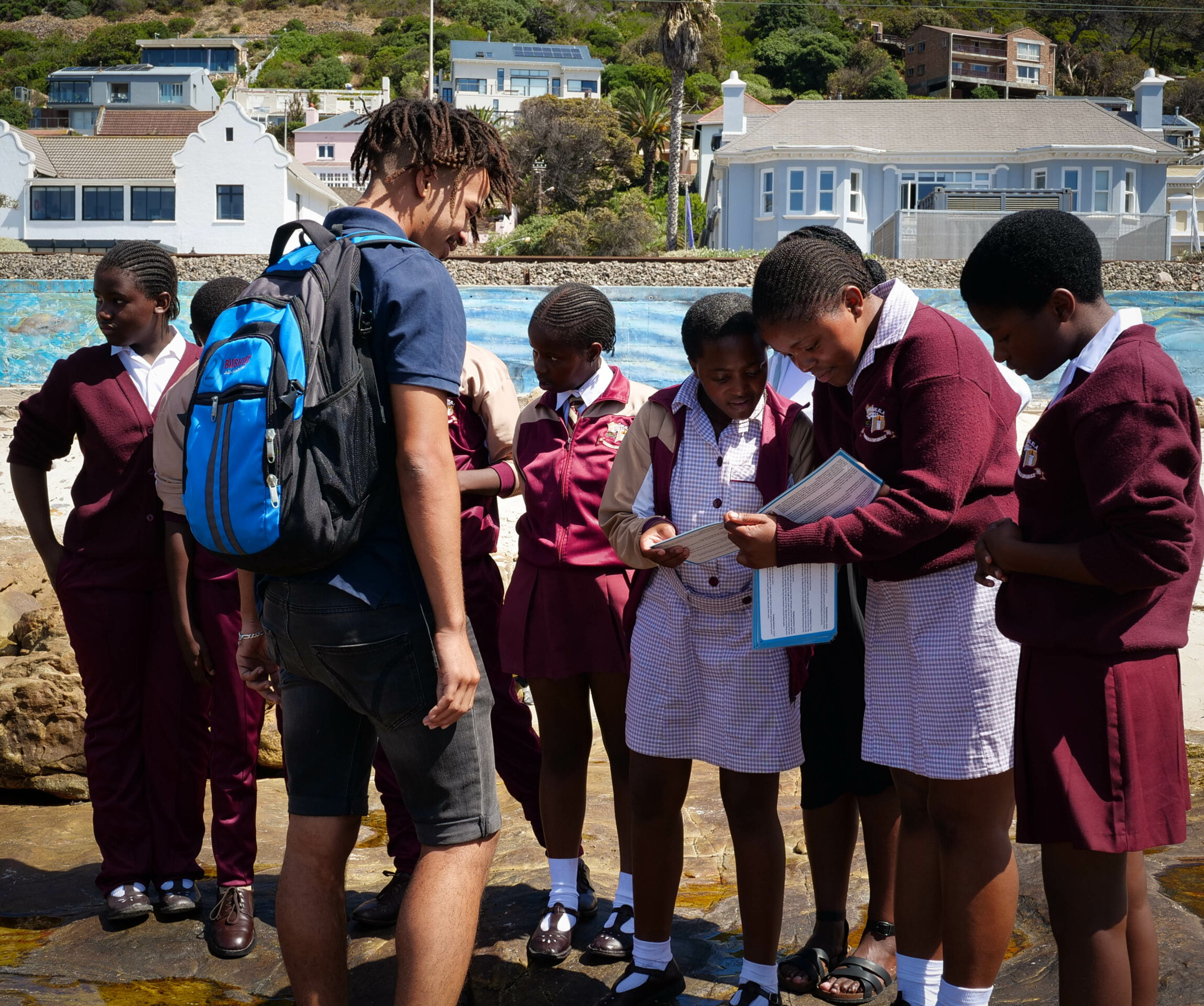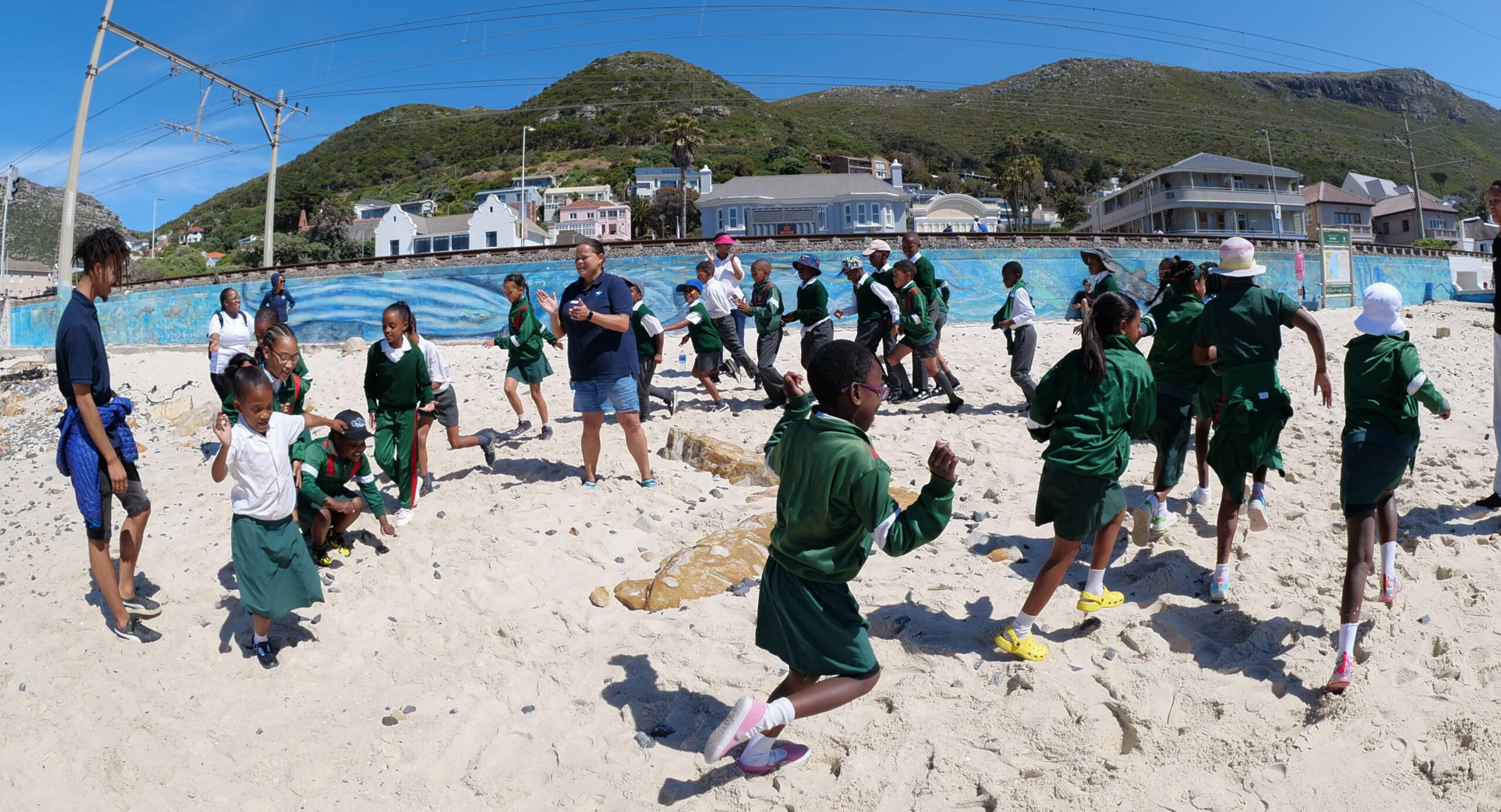Why Children Should Learn in Their Mother Tongue
South Africa has a rich blend of cultures, traditions, and languages. Many South Africans, including myself, have had to adopt English as their first language because it’s the primary language used in our schools and universities. According to UNESCO, “an estimated 40% of children are not accessing education in their mother tongue.” Not having access to educational materials in their mother tongue can limit young children’s learning abilities and potential, making them discouraged and limited in academic pursuits. During a recent conversation with a colleague, we discussed the importance of teaching children in their home language, especially science. This conversation stemmed from our organisation’s goal: to make marine conservation accessible to people from different backgrounds. Language is a powerful tool in shaping a child’s emotional, cognitive, and social development. This blog post explores the benefits of teaching young children in their mother tongue.
Cognitive Development:
Cognitive development refers to the development of children’s skills and abilities. According to UNESCO (2022), “Research has shown that education in one’s mother tongue is a crucial aspect of inclusive and quality learning” This means that when students are taught in a language they are familiar with, they are more likely to understand the concepts being taught, and are less likely to feel discouraged or demotivated and in turn, can lead to a greater sense of achievement and a more positive attitude towards learning.
I recall my discussions with my colleagues, who pointed out that students from the different schools we collaborate with at the Save Our Seas Foundation Shark Education Centre tend to be more engaged when the information about sharks, the ocean, and marine life is presented in their native language. The children ask more questions and better understand the information shared with them.

A learner from Hillwood Primary School, writing notes during an outreach programme by the education team. Image by ©Logan Benjamin
Enhanced Communication Skills:
Effective communication is highly dependent on language. I recall feeling overwhelmed during my first lecture at university as I struggled to express myself as effectively as my peers. This experience ultimately affected my confidence in communicating with others. It is crucial to have a strong foundation in reading, writing, and speaking in your native language before learning a second language. By doing so, you can communicate more confidently and effectively in both languages.
Promoting inclusivity and diversity:
Encouraging children to learn in their mother language promotes inclusivity by teaching them in a language that they will understand and that their parents can understand. This experience allows children and people from different backgrounds to connect and contribute to transferable learning.

Learners from Sophumelela High, during a rocky shore exploration with one of the senior educators, Afikile Ndude. Image by©AntoniqueDick.
For example, I work within the conservation space, where the working language is English, and when I go home, I am unable to share my learnings with older family members because they do not have an understanding of the terminologies used and because English has become my medium language, I am unable to teach them about the conservation space in Afrikaans.
At the SOSF Shark Education Centre, we are taking steps to become a more inclusive and accessible educational organisation. One of the ways we are doing this is by having multilingual educators who can translate lessons and printed materials into different languages. We aim to address divisions and make our educational resources available to everyone.
Education in one’s mother tongue is crucial for learning and acknowledges the value of different cultures. It helps with academic success, cognitive development, preserving cultures, and sharing and making information more accessible. Happy International Mother Language Day! May we continue working towards a more inclusive and accessible educational system.

Eight-grade learners from Sophumulela High School read through our Rockpool Pocket guide with Junior Educator Wade Naude. Image by ©Antonique Dick.

